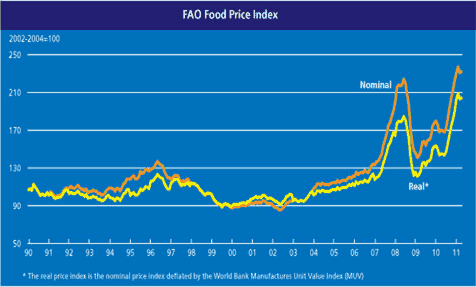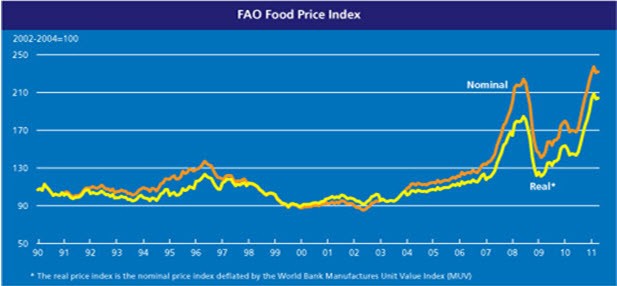What A DoubleDip Recession Would Mean For Venture Capital Venture Capital Dispatch
Post on: 4 Июль, 2015 No Comment

The following guest post comes from Mark Suster. a venture capitalist who last October warned that the economy’s resurgence was only temporary and that there was a strong possibility of a “double dip” recession. His advice to entrepreneurs then was, “when the hors d’oeuvres tray is being passed take two ” – e.g. raise money now to weather any storms later.
Associated Press
In a recent message on Twitter, Mr. Suster said. “Many will disagree but I still fear deflation, structural unemployment and political malaise.” We asked Mr. Suster, a partner at Los Angeles-based venture firm GRP Partners. to elaborate about what this could mean for the start-up and venture capital community.
One year ago I worried that consumers were overstretched with debt, and unemployment would continue to rise, which in turn would drive the stock market south and cut the rate of venture capital investment even further.
When I wrote this the Dow Jones Industrial Average had already come roaring back from 6,600 to 9,865 so it was certainly against conventional wisdom. It eventually closed at 11,204 in April before sliding back to 10,000 as I sit here and type. My fears haven’t abated, so I’d like to offer my current thinking on the economy and what it portends for the VC industry and fund-raising for entrepreneurs. I have a vested interest in being wrong about tough times ahead, but as the old saying goes, “hope for best, plan for the worst.”
I do see a number of weaknesses in the economy that could spell trouble for my industry. For starters, the official unemployment rate in the U.S. is hovering just below 10% but “true” unemployment is much higher when you account for those that have stopped looking or taken part-time employment. When you further strip out any employment created by government stimulus that is uncertain going forward we know the country is not creating enough jobs.
This has led to the unusual proclamation by Andy Grove (former CEO of Intel) to call for protectionist measures against China in what he calls the 10x problem – for every high-tech job we create in the U.S. China is creating 10 as evidenced by Apple’s 25,000 employees against its Chinese supply-chain of 250,000. So some of our job loss may be “structural” where middle-class tech jobs are less abundant.
To compound matters, personal balance sheets are still stretched. The problem starts and ends with “consumerism” where people have spent beyond their means for years. This was fueled by artificially high real estate prices and the process of “de-leveraging” (eg, increasing savings) will last for some time. The spending contraction is inevitable in a period of declining real prices of housing, high unemployment and tightening credit.
And the housing market is showing no signs of recovery. Sales in existing homes in the U.S. fell 27.2% between June and July (and 25% from a year ago). Sales fell in every region of the country with the Midwest suffering the worst at 35%. We also have an overhang of foreclosures either held by banks or consumers who have not yet “blown up” but are increasingly behind on payments. Anybody wanting to understand how “oversold” the housing market is should read The Big Short .
Our housing slump is exacerbated by the government’s attempt to stem price declines. The government’s tax incentive for first-time buyers, which many people believe “pulled forward” demand rather than improved the market, expired April 30. The same happened in autos and one could argue the same has happened with the government stimulus. Surely any retrenchment in Keynesian stimulus will lead to further economic declines. The reality is that when governments try to intercede they often create “the law of unintended consequences,” and to a certain degree assets prices just need to normalize. Political malaise and party differences in Washington foreshadow less intervention in the next two years.
High unemployment, wage stagnation, lowering real estate prices and lower demand for products may lead to deflation. This coupled with government intervention of companies “too big to fail” was the blight that led to Japan’s “lost decade .” Sound familiar? Deflation is crippling because as consumers expect products to be cheaper tomorrow they hold off purchasing leading to a negative spiraling economy. With interest rates near 0% the Fed would need to turn to non-conventional means to stem deflation such as “quantitative easing .”

All of this plus a sell-off due to tax rate changes could lead to a stock-market decline in the coming quarters, which further lowers consumer spending and would hit corporate earnings. Stock-market valuations affect M&A activities for start-ups, which with the reduction of the IPO market could spell lower returns in the short-term for technology start-up investors.
Stock market and real estate impacts hit individual angel investors before they affect venture capitalists, so that is where the initial hit will likely come. This class of investors invests personal money and is more diversified across categories thus it feels the hit in assets declines first. A lowering of M&A activity would lead to increased financing needs for start-ups, driving higher failure rates or increases in “adverse terms” entering future financing rounds.
Equally worrying for entrepreneurs if the markets take a turn for the worse is that even if they managed to get angel or VC rounds funded they may run into a VC brick wall. VC funding is definitely back from the constipation that was 2009 replete with frothy valuations chasing dreams of the next Facebook, Groupon or Zynga. But a double-dip recession coupled with a contracting VC market will surely bring back a period of inertia.
In this scenario investors who have put money to work in capital efficient companies at reasonable valuations will fare the best. The investors who will be especially vulnerable are those who chose to spread too many bets or didn’t reserve enough for follow-on investments. Massive market corrections requires hands-on investors who are good at building management confidence in tough times, encouraging costs cuts, performing triage so that the strongest survive and helping shepherd co-investors into writing follow-on checks. Try doing that with too many chips on the craps table.
If this theory turns out to be correct the entrepreneurs who raised enough money in 2010 to weather a storm will be best placed to survive the second dip. Additionally, those who run lean operations and raised money from supportive investor bases will be best positioned. A combination of entrepreneur-friendly angels with deep-pocketed VCs might be just what the doctor ordered.
The tech industry can help with job stimulation, but we’re not immune to macroeconomic trends.














